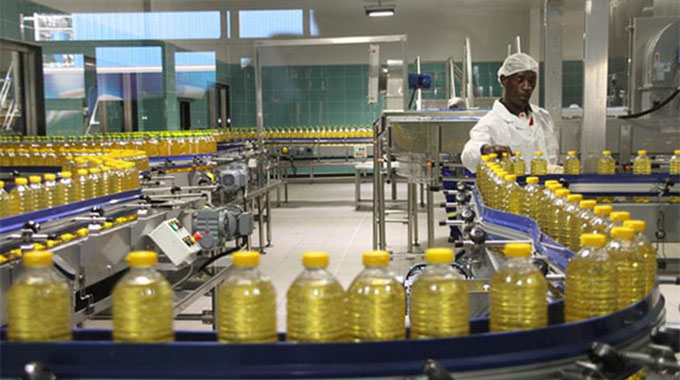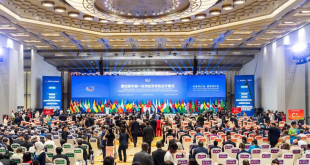Published: November 29,2024

Zimbabwe seeks to leverage China’s manufacturing expertise to develop value chains rooted in the southern African country’s vast mineral wealth, a senior official from Zimbabwe’s ruling party has said.
Christopher Mutsvangwa, Zimbabwe’s ruling Zimbabwe African National Union-Patriotic Front (ZANU PF) party Politburo member and the party’s secretary for information and publicity, told Xinhua in a recent interview that China has played a pivotal role in bolstering Zimbabwe’s industrial ambitions.
He noted that Zimbabwe’s manufacturing sector has gained significant momentum following a major investment in the iron and steel industry by China’s Tsingshan Holding Group, a company specialized in nickel and stainless steel production.
Through its local subsidiary, Dinson Iron and Steel Company, Tsingshan began pig iron production in June at the plant in Manhize, located in Zimbabwe’s Midlands Province. This milestone marks a critical step in reviving the African nation’s once-thriving steel industry.
With abundant iron ore, rich chrome deposits, and high-grade coking coal, Zimbabwe is now positioned to become one of the region’s leading producers and exporters of steel products, Mutsvangwa said. “The future of the steel industry is one of the very brightest in the world, and we see China’s experience, China’s prowess in steel production coming to Zimbabwe.”
By leveraging Chinese investments, Zimbabwe aims to shift from exporting unprocessed or semi-processed minerals to producing steel and value-added products for the global market, said Mutsvangwa, who emphasized Zimbabwe’s potential role in the global green transition, driven by Zimbabwe’s lithium reserves and China’s advancements in manufacturing new energy vehicles.
“This is a very, very big opportunity, and we expect big Chinese companies to bring their latest technology in battery making, in electric vehicle making, in steel fabrication, to come to Zimbabwe and the region so that the region can help the world, save the world by supplying carbon-free mobility to the global populace,” he said.
Mutsvangwa underscored the ripple effects of mining sector investments, which he said would bolster other industries, including transportation. “The scope is wide, we just want more Chinese investment, and the disadvantage, of course, was that we are a little bit far from the sea. But now, with the investment in mining, a lot of infrastructure is going to be built to satisfy the mining industry,” he said.
Chinese equipment has already transformed Zimbabwe’s gold mining sector, creating a model that Mutsvangwa believes can be replicated in other industries, saying that the success Zimbabwe has seen in gold mining, powered by Chinese machinery, drives prosperity for young miners. This success can be extended to other sectors.
He said Zimbabwe is also exploring the supply of irrigation equipment from China to enhance the African country’s agricultural sector. “China is a world leader now in drip irrigation and water saving. So, there is a lot of scope for Chinese agricultural equipment to find its way into the Zimbabwe market. Chinese mining equipment has changed the gold industry of Zimbabwe. So, we can do the same now with agriculture,” added Mutsvangwa.
Xinhua
 Africa -China Review Africa -China Cooperation and Transformation
Africa -China Review Africa -China Cooperation and Transformation
